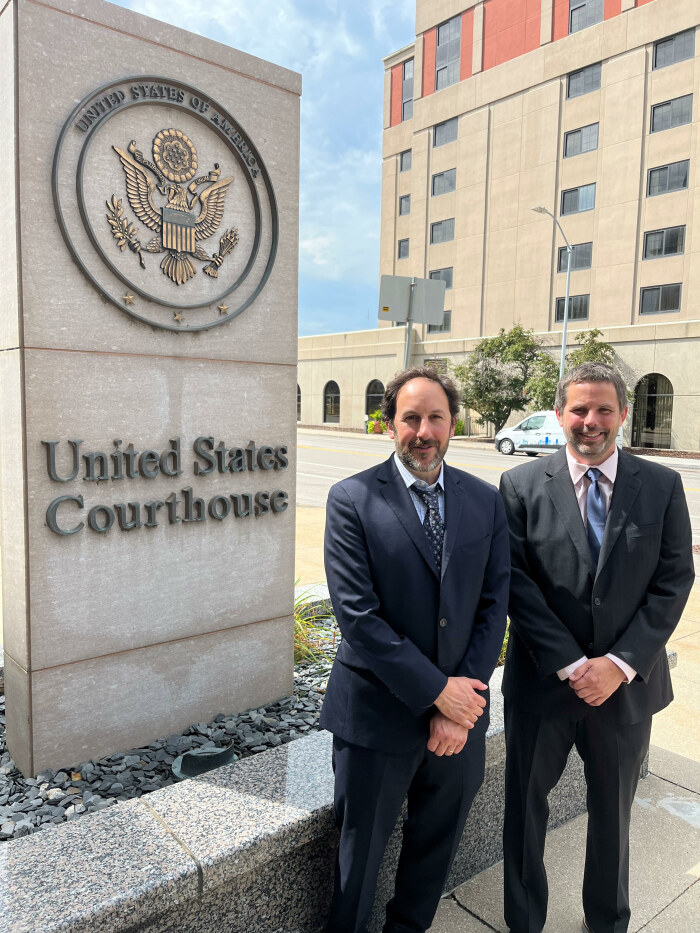Nate Willems served in the Iowa House from 2009 through 2012 and practices law with the Rush & Nicholson firm in Cedar Rapids. This essay previously appeared in the Prairie Progressive.
In August 2019, I filed a federal lawsuit on behalf of several current and former employees of University of Iowa Hospitals and Clinics. We claimed UIHC was violating Iowa law by holding on to certain wage payments for too long before paying. As UIHC had a common payroll practice, we sought to certify a class action. Eventually, the U.S. District Court authorized the class action, and we took on representation of 11,000 current and former UIHC workers.
There was never any allegation UIHC entirely refused to pay workers. However, Iowa law requires a regular payday be within twelve days after the end of the period in which the wages were earned. For as long as anyone could remember, overtime, supplemental pay, pay for shifts that went long, and other types of premium pay were paid one month late.
UIHC used to go so far as to have a website which stated, “Our policy is to pay overtime one month in arrears. Overtime worked in September will not be paid in October but will appear in your November paycheck.” There is value to possessing money whether you are an employer or an individual. If someone takes your wallet, holds it for one month, and then returns it to you intact, that is still stealing.
UIHC announced in November 2020 that it would pay employees more than once a month, in a manner which should comply with Iowa law. We hope illegal late wage payments have been put to a stop for all university employees forever.
On September 6, U.S. District Court Chief Judge Stephanie Rose ordered final approval of a class action settlement between the Iowa Board of Regents and 11,000 current and former employees of University of Iowa Hospitals and Clinics. After four years of litigation, the Regents will pay $15 million to settle claims of systematic, unlawful late payment of wages over decades.
Changing an illegal policy and recovering money for impacted workers are important victories. They are victories, though, which would not have been possible without the help we received from the Service Employees International Union (SEIU) and the American Federation of State, County & Municipal Employees (AFSCME).
Even though public sector unions in Iowa have lost many rights to bargain a contract, this lawsuit shows their importance. Unions made internal complaints to management, provided documents, pointed us to witnesses, pointed us to management witnesses, provided institutional knowledge and a whole host of other helpful tips which could not be replicated or found without a union at the workplace.
Nobody is claiming to have solved all the challenges workers face at UIHC. Employers, including UIHC, tend to believe they can do what they are doing to their workers because that is what they have always done to their workers. Real compliance with Iowa’s wage and hour laws will not likely ever happen unless and until executives and managers understand there can be criminal liability for stealing peoples’ wages.
In the meantime, though, two large Iowa unions have helped us recover millions of dollars for their members and caused the largest employer in Johnson County to change how it conducts business. This is a victory, and there are more victories to be won.
Top image: Nate Willems (right) with co-counsel Ben Weber in front of the federal courthouse in Cedar Rapids on August 25, 2023. Photo provided by the author and published with permission.
Appendix: Full text of June 22 order by U.S. District Court Chief Judge Stephanie Rose granting preliminary approval of settlement. Click here to read or download Judge Rose’s final order, issued on September 6 (it’s only a few pages long).


1 Comment
thanks for the fight & the update
appreciate everyone working to get folks paid what they are due, we need to pay even more attention to UIHC as they seek to expand their reach and push for monopoly powers in the IC area.
dirkiniowacity Wed 27 Sep 5:19 PM